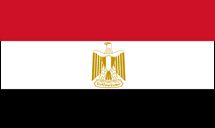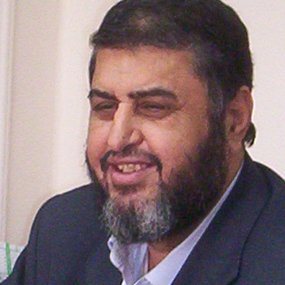Fact:
On April 3, 2017, the day Vladimir Putin was due to visit the city, a suicide bombing was carried out in the St. Petersburg metro, killing 15 people and injuring 64. An al-Qaeda affiliate, Imam Shamil Battalion, claimed responsibility.
‘Abd al-Malik Muhammad Yusuf ‘Uthman ‘Abd al-Salam, better known as Umar al-Qatari, is a U.S.- and U.N.-designated fundraiser and arms and technology facilitator for al-Qaeda.“Treasury Designates Twelve Foreign Terrorist Fighter Facilitators,” U.S. Department of the Treasury, September 24, 2014, https://www.treasury.gov/press-center/press-releases/Pages/jl2651.aspx; “Security Council Al-Qaida Sanctions Committee Adds Four Names to Its Sanctions List,” United Nations, January 30, 2015, https://www.un.org/press/en/2015/sc11750.doc.htm. Al-Qatari was designated by the U.S. Department of Treasury in September 2014 for his facilitation, financial and material support for al-Qaeda, al-Qaeda in the Arabian Peninsula (AQAP), the Nusra Front and al-Qaeda in Iraq (AQI).Aliyah Frumin, “US Designates 12 Backers of Terrorist Organizations,” MSNBC, September 24, 2014, http://www.msnbc.com/msnbc/us-designate-12-backers-terrorist-organizations. Also known as the “Wolf of al-Qaeda” al-Qatari was arrested in Lebanon in May 2012 as he attempted to board a plane for Qatar. He was carrying thousands of dollars intended for Nusra Front operatives in Syria.“Treasury Designates Twelve Foreign Terrorist Fighter Facilitators,” U.S. Department of the Treasury, September 24, 2014, https://www.treasury.gov/press-center/press-releases/Pages/jl2651.aspx.
Al-Qatari is an experienced fundraiser for al-Qaeda. In late 2011, he delivered thousands of dollars to U.S. and U.N.-designated al-Qaeda facilitator Muhsin al-Fadhli in Iran.Robert Mendick, “Banker who financed 9/11 mastermind now funding terrorists in Syria and Iraq,” Telegraph, October 4, 2014, http://www.telegraph.co.uk/news/worldnews/middleeast/syria/11140190/Banker-who-financed-911-mastermind-now-funding-terrorists-in-Syria-and-Iraq.html.
Al-Qatari also reportedly worked with countryman Ibrahim al-Bakr in 2012 to obtain and transport weapons to Syria. The two men received assistance from a Syria-based al-Qaeda associate. In the same year, al-Qatari reportedly raised money from Gulf-based donors online and organized the transfer of tens of thousands of euros from U.S. and U.N.-designated al-Qaeda financier Khalifa Muhammad Turki al-Subaiy. The money reportedly went to support al-Qaeda and its senior leaders.“Treasury Designates Twelve Foreign Terrorist Fighter Facilitators,” U.S. Department of the Treasury, September 24, 2014, https://www.treasury.gov/press-center/press-releases/Pages/jl2651.aspx. Additionally, according to local media sources, al-Qatari allegedly provided 200,000 Qatari riyals,18,000 euros, as well as night-vision goggles, communications equipment, weapons, and ammunition to contacts in Antakya, Turkey to be transferred to Syria.Aykan Erdemir and Varsha Koduvayur, “Brothers in Arms: The Consolidation of the Turkey-Qatar Axis,” Foundation for Defense of Democracies, December 2019, https://www.fdd.org/wp-content/uploads/2019/12/fdd-report-brothers-in-arms-the-consolidation-of-the-turkey-qatar-axis.pdf.
In early 2012, al-Qatari reportedly spent time at a training camp in Waziristan, Pakistan and traveled across the Gulf, the Levant, Iran, South Asia, and Southeast Asia to carry out recruitment and logistical support for al-Qaeda members in the Middle East. In May 2012, al-Qatari was apprehended by Lebanese authorities in Beirut as he attempted to depart for Qatar.“Treasury Designates Twelve Foreign Terrorist Fighter Facilitators,” U.S. Department of the Treasury, September 24, 2014, https://www.treasury.gov/press-center/press-releases/Pages/jl2651.aspx. He was carrying thousands of dollars intended for al-Qaeda and Nusra Front operatives in Syria.“Treasury Designates Twelve Foreign Terrorist Fighter Facilitators,” U.S. Department of the Treasury, September 24, 2014, https://www.treasury.gov/press-center/press-releases/Pages/jl2651.aspx.
The Nusra Front has been trying to negotiate a prisoner swap to free al-Qatari since 2013. During his detention, al-Qatari is believed to have facilitated communications between detainees in Lebanon and Nusra Front fighters located in Syria and Lebanon. Al-Qatari has also reportedly worked with Turkey-based Syrians in an effort to recruit them to work with the Nusra Front.Robert Mendick, “Qatar’s Moneymen Behind the Kidnappers,” Telegraph, October 5, 2014, http://www.telegraph.co.uk/news/worldnews/middleeast/qatar/11141419/Qatars-moneymen-behind-the-kidnappers.html.
On September 24, 2014, the U.S. Department of the Treasury designated al-Qatari as a Specially Designated Global Terrorist for his role in sending financial and material support to foreign terrorist fighters in Syria and elsewhere.“Treasury Designates Twelve Foreign Terrorist Fighter Facilitators,” U.S. Department of the Treasury, September 24, 2014, https://www.treasury.gov/press-center/press-releases/Pages/jl2651.aspx. The U.N. Security Council’s al-Qaida Sanctions Committee followed suit and on January 23, 2015 added al-Qatari to its sanctions list for providing financial, material, and technological support for al-Qaeda and the Nusra Front.“Security Council Al-Qaida Sanctions Committee Adds Four Names to Its Sanctions List,” United Nations, January 30, 2015, https://www.un.org/press/en/2015/sc11750.doc.htm.

The U.S. Department of the Treasury designated ‘Abd al-Malik Muhammad Yusuf ‘Uthman ‘Abd al-Salam (a.k.a. Umar al-Qatari) as a Specially Designated Global Terrorist on September 24, 2014.“Treasury Designates Twelve Foreign Terrorist Fighter Facilitators,” U.S. Department of the Treasury, September 24, 2014, https://www.treasury.gov/press-center/press-releases/Pages/jl2651.aspx.

The United Nations Security Council Al-Qaida Sanctions Committee adds ‘Abd al-Malik Muhammad Yusuf ‘Uthman ‘Abd al-Salam to its sanctions list on January 23, 2015.“Security Council Al-Qaida Sanctions Committee Adds Four Names to Its Sanctions List,” United Nations, January 30, 2015, https://www.un.org/press/en/2015/sc11750.doc.htm.

Ibrahim al-Bakr is a Qatari born facilitator who reportedly provides financial support and services to al-Qaeda. “Security Council Al-Qaida Sanctions Committee Adds Four Names to Its Sanctions List,” United Nations, January 23, 2015, http://www.un.org/press/en/2015/sc11750.doc.htm. In the early 2000s, Qatari authorities arrested al-Bakr for his involvement in a jihadist network. He was subsequently released on the condition that he no longer conduct terrorist activity in Qatar. “Treasury Designates Twelve Foreign Terrorist Fighter Facilitators,” U.S. Department of the Treasury, September 24, 2014, http://www.treasury.gov/press-center/press-releases/Pages/jl2651.aspx. Al-Bakr subsequently played a key role in a terrorist cell that was plotting to attack U.S. military targets in Qatar and provided funding and fundraising support for al-Qaeda. “Treasury Designates Twelve Foreign Terrorist Fighter Facilitators,” U.S. Department of the Treasury, September 24, 2014, http://www.treasury.gov/press-center/press-releases/Pages/jl2651.aspx.
As of 2012, al-Bakr was reportedly collecting money for al-Qaeda and the Taliban, serving as a link between Gulf-based al-Qaeda financiers and Afghanistan. “Treasury Designates Twelve Foreign Terrorist Fighter Facilitators,” U.S. Department of the Treasury, September 24, 2014, http://www.treasury.gov/press-center/press-releases/Pages/jl2651.aspx; “NARRATIVE SUMMARIES OF REASONS FOR LISTING: QDi.344. Ibrahim ‘Isa Hajji Muhammad al-Bakr,” United Nations, January 23, 2015, http://www.un.org/sc/committees/1267/NSQI34415E.shtml. Al-Bakr is believed to be currently hiding in Pakistan.

The EU imposed restrictions on Ibrahim 'Isa Hajji Muhammad al-Bakr for his affiliation with al-Qaeda on February 3, 2015. “COMMISSION IMPLEMENTING REGULATION (EU) 2015/167 of 3 February 2015 amending for the 225th time Council Regulation (EC) No 881/2002 imposing certain specific restrictive measures directed against certain persons and entities associated with the Al Qaida network,” EUR-Lex, February 3, 2015, http://eur-lex.europa.eu/legal-content/EN/TXT/?uri=OJ:JOL_2015_028_R_0003.

The U.K. added Ibrahim ‘Isa Hajji Muhammad al-Bakr to its Consolidated List of Financial Sanctions Targets in the U.K. on February 3, 2015. “Consolidated List of Financial Sanctions Targets in the UK,” HM Treasury, April 28, 2015, http://hmt-sanctions.s3.amazonaws.com/sanctionsconlist.htm.

The U.N. Security Council added Ibrahim 'Isa Hajji Muhammad al-Bakr to its Al-Qaida Sanctions List on January 23, 2015. “Security Council Al-Qaida Sanctions Committee Adds Four Names to Its Sanctions List,” United Nations, January 23, 2015, http://www.un.org/press/en/2015/sc11750.doc.htm.

The U.S. Department of the Treasury designated Ibrahim ‘Isa Hajji Muhammad al-Bakr as a Specially Designated Global Terrorist pursuant to Executive Order 13224 on September 24, 2014. “Treasury Designates Twelve Foreign Terrorist Fighter Facilitators,” U.S. Department of the Treasury, September 24, 2014, http://www.treasury.gov/press-center/press-releases/Pages/jl2651.aspx.

The UAE cabinet issued Regulation No. 18, which designated Ibrahim Isa Hajji Muhammad al-Bakr as a supporter of terrorism on June 9, 2017.“Qatar-Linked People, Groups on Terror List,” Gulf News, June 9, 2017, https://gulfnews.com/world/gulf/qatar/qatar-linked-people-groups-on-terror-list-1.2040686.

The Kingdom of Saudi Arabia designated Ibrahim Isa Hajji Muhammad al-Bakr as a suspected terrorist supporter on the basis of having “specifically financed, aided and/or provided material support to al-Qaida and its associated organisations and networks” on June 9, 2017.“43 New Designations Specifically Address Threats Posed by Qatar Linked and Based Al Qaida Terrorism Support Networks,” Emirates New Agency, June 9, 2017, http://wam.ae/en/details/1395302618259.

The Arab Republic of Egypt designated Ibrahim Isa Hajji Muhammad al-Bakr as a suspected terrorist supporter on the basis of having “specifically financed, aided and/or provided material support to al-Qaida and its associated organisations and networks” on June 9, 2017.“43 New Designations Specifically Address Threats Posed by Qatar Linked and Based Al Qaida Terrorism Support Networks,” Emirates New Agency, June 9, 2017, http://wam.ae/en/details/1395302618259.

The Kingdom of Bahrain designated Ibrahim Isa Hajji Muhammad al-Bakr as a suspected terrorist supporter on the basis of having “specifically financed, aided and/or provided material support to al-Qaida and its associated organisations and networks” on June 9, 2017.“43 New Designations Specifically Address Threats Posed by Qatar Linked and Based Al Qaida Terrorism Support Networks,” Emirates New Agency, June 9, 2017, http://wam.ae/en/details/1395302618259.

Khairat el-Shater is the imprisoned deputy supreme guide of the Muslim Brotherhood.Reuters Staff, “Egypt Brotherhood deputy leader Shater arrested,” Reuters, July 5, 2013, https://www.reuters.com/article/us-egypt-protests-shater/egypt-brotherhood-deputy-leader-shater-arrested-idUSBRE96410L20130705. As a senior leader of the organization, el-Shater plays a key in policymaking and as a chief strategist,Matthew Kaminski, “Khairat Al Shater: The Brother Who Would Run Egypt,” Wall Street Journal, June 22, 2012, https://www.wsj.com/articles/SB10001424052702304765304577482690379062050. though it is unclear to what extent he currently operates from prison. A member of the Muslim Brotherhood for over 20 years, el-Shater was the organization’s first candidate for the Egyptian presidency in 2012 before he was banned from running, allowing for Mohammed Morsi to replace him and win the runoff presidential election.Andreas Gorzewski, “Egypt’s Mohammed Morsi faces another death sentence,” Deutsche Welle, June 17, 2018, http://www.dw.com/en/egypts-mohammed-morsi-faces-another-death-sentence/a-19339362. El-Shater is considered a chief financier of the Brotherhood, though his assets were frozen by the military government following his July 2013 arrest.Naomi Conrad, “Underground with the Muslim Brotherhood,” Deutsche Welle, July 2, 2015, http://www.dw.com/en/underground-with-the-muslim-brotherhood/a-18558234. El-Shater had been arrested numerous times on charges ranging from terrorism and inciting violence against protesters to profiteering and money laundering.Bradley Hope, “Khairat Al Shater – Muslim Brotherhood power broker and now target of Egyptian anger,” National (Abu Dhabi), July 3, 2013, http://www.thenational.ae/news/world/middle-east/khairat-al-shater-muslim-brotherhood-power-broker-and-now-target-of-egyptian-anger. He has served in Egyptian prison since July 5, 2013, on charges of inciting violence in the days before Morsi’s 2013 ouster and for spying for Hamas.El-Sayed Gamaledine, “Muslim Brotherhood's second-man El-Shater arrested: Security official,” Ahram Online, July 6, 2013, http://english.ahram.org.eg/NewsContent/1/64/75815/Egypt/Politics-/Muslim-Brotherhoods-secondman-ElShater-arrested-Se.aspx; “Egypt court issues preliminary death sentence to Morsi in ‘jailbreak case,’” Reuters, May 16, 2015, https://www.reuters.com/article/us-egypt-mursi/egypt-court-hands-mursi-death-sentence-in-blow-to-muslim-brotherhood-idUSKBN0OW0XC20150616.
El-Shater was born on May 4, 1950, in the province of Daqahliya, Egypt. He earned an engineering degree from Alexandria University.“Profile: Egypt's Khairat al-Shater,” Al Jazeera, April 1, 2012, http://www.aljazeera.com/news/middleeast/2012/04/20124117205835954.html. He served in the Egyptian military for two years, and then went on to earn a master’s degree in engineering from Mansura University.“Profile: Egypt's Khairat al-Shater,” Al Jazeera, April 1, 2012, http://www.aljazeera.com/news/middleeast/2012/04/20124117205835954.html. El-Shater joined the Muslim Brotherhood in 1981 after years as a student activist.“Profile: Egypt's Khairat al-Shater,” Al Jazeera, April 1, 2012, http://www.aljazeera.com/news/middleeast/2012/04/20124117205835954.html. In 1995, el-Shater became the head of the Brotherhood's Greater Cairo branch.“Profile: Egypt's Khairat al-Shater,” Al Jazeera, April 1, 2012, http://www.aljazeera.com/news/middleeast/2012/04/20124117205835954.html. That same year, he was tried by a military court for trying to “revive” the Muslim Brotherhood and sentenced to five years in prison.“Profile: Egypt's Khairat al-Shater,” Al Jazeera, April 1, 2012, http://www.aljazeera.com/news/middleeast/2012/04/20124117205835954.html.
El-Shater was the chief strategist of the Muslim Brotherhood and a successful businessman. He owned a furniture and fabric business with stores in luxurious neighborhoods in Cairo. He was reportedly worth several million dollars.Abul-Magd Zeinab, "The Brotherhood's businessmen," Egypt Independent (Cairo), February 13, 2012, http://www.egyptindependent.com//opinion/brotherhoods-businessmen. He and other Muslim Brotherhood leaders were arrested in 2006 and in 2007, he was sentenced to seven years in prison by a military court for providing students with weapons and military training.Yolande Knell, “Egypt candidate: Muslim Brotherhood’s Khairat al-Shater,” BBC News, April 2, 2012, http://www.bbc.com/news/world-middle-east-17583661. Despite being in prison, el-Shater still reportedly ran his profitable business and maintained his decision-making responsibilities in the Muslim Brotherhood. Considered a political prisoner, he was released from prison in March 2011, weeks after the ouster of Egyptian President Hosni Mubarak.Amira Howeidy, “Meet the Brotherhood’s enforcer: Khairat El-Shater,” Ahram Online, March 29, 2012, http://english.ahram.org.eg/News/37993.aspx. Foreign Policy magazine named el-Shater one of its “Top 100 Global Thinkers” in December 2011.Kedar Pavgi, “The FP Top 100 Global Thinkers,” Foreign Policy, November 29, 2011, http://foreignpolicy.com/2011/11/28/the-fp-top-100-global-thinkers-4/.
In the lead-up to the 2012 Egyptian presidential election, the Muslim Brotherhood pledged that it would not field its own candidate. El-Shater himself used the case of an Islamist victory in the 1991 Algerian elections as a warning: “When Islamists there reached power quickly, the military establishment turned against them.”David D. Kirkpatrick, “Islamist Group Breaks Pledge to Stay Out of Race in Egypt,” New York Times, March, 31, 2012, http://www.nytimes.com/2012/04/01/world/middleeast/brotherhood-chooses-a-candidate-in-egypt.html. On March 31, 2012, the FJP broke its pledge and named el-Shater as its presidential candidate,Mohamed Fadel Fahmy, “Egypt's Muslim Brotherhood to field presidential candidate,” CNN, April 1 2012, http://www.cnn.com/2012/04/01/world/meast/egypt-brotherhood-president/. but the Egyptian Supreme Council of the Armed Forces barred him from running because he had been recently incarcerated. Egypt’s election rules excluded candidates who had been incarcerated within six years.“Egypt bars 10 candidates from election,” Al Jazeera, April 15, 2012, http://www.aljazeera.com/news/middleeast/2012/04/2012414185229419379.html. The Muslim Brotherhood instead put FJP chairman Mohammed Morsi forward as its presidential candidate. Morsi went on to win the election in June 2012.David D. Kirkpatrick, “Named Egypt’s Winner, Islamist Makes History,” New York Times, June 24, 2012, http://www.nytimes.com/2012/06/25/world/middleeast/mohamed-morsi-of-muslim-brotherhood-declared-as-egypts-president.html.
El-Shater represented the Muslim Brotherhood during negotiations with the Supreme Council of the Armed Forces, which had seized power following Mubarak’s fall. He was critical of the military for its power grab and insisted the generals hand the reins of government over to the democratically elected Morsi.Matthew Kaminski, “Khairat Al Shater: The Brother Who Would Run Egypt,” Wall Street Journal, June 22, 2012, https://www.wsj.com/articles/SB10001424052702304765304577482690379062050. According to news reports, el-Shater and the Muslim Brotherhood’s board held significant influence over the Morsi government.David D. Kirkpatrick, “Named Egypt’s Winner, Islamist Makes History,” New York Times, June 24, 2012, http://www.nytimes.com/2012/06/25/world/middleeast/mohamed-morsi-of-muslim-brotherhood-declared-as-egypts-president.html. El-Shater became known as a backroom operator due to his importance within the Brotherhood and powerful business connections.Bradley Hope, “Khairat Al Shater – Muslim Brotherhood power broker and now target of Egyptian anger,” National (Abu Dhabi), July 3, 2013, http://www.thenational.ae/news/world/middle-east/khairat-al-shater-muslim-brotherhood-power-broker-and-now-target-of-egyptian-anger. He met with foreign diplomats and executives of global companies who visited Egypt.Bradley Hope, “Khairat Al Shater – Muslim Brotherhood power broker and now target of Egyptian anger,” National (Abu Dhabi), July 3, 2013, http://www.thenational.ae/news/world/middle-east/khairat-al-shater-muslim-brotherhood-power-broker-and-now-target-of-egyptian-anger. He even served as a diplomatic envoy for the Brotherhood on a trip to Qatar to discuss developments in Egypt and the region.“Brotherhood’s deputy supreme guide heads to Qatar for talks,” Egypt Independent (Cairo), March 5, 2012, http://www.egyptindependent.com/brotherhoods-deputy-supreme-guide-heads-qatar-talks/. Due to his prolific activities on behalf of the Brotherhood in the Morsi administration, many within the Egyptian government and the general population reportedly grew to resent el-Shater, making him a target for civil anger.Bradley Hope, “Khairat Al Shater – Muslim Brotherhood power broker and now target of Egyptian anger,” The National, July 3, 2013, http://www.thenational.ae/news/world/middle-east/khairat-al-shater-muslim-brotherhood-power-broker-and-now-target-of-egyptian-anger.
On July 5, 2013, el-Shater was arrested on charges of inciting violence following the military coup d’état that removed Morsi from the presidency.El-Sayed Gamaledine, “Muslim Brotherhood's second-man El-Shater arrested: Security official,” Ahram Online, July 6, 2013, http://english.ahram.org.eg/NewsContent/1/64/75815/Egypt/Politics-/Muslim-Brotherhoods-secondman-ElShater-arrested-Se.aspx. Egyptian courts twice attempted to try him, but both times the panel of judges withdrew from the trial, citing that they felt “uneasy.”“Judges in Egypt's Muslim Brotherhood Trial Quit,” Al Jazeera, October 29, 2013, http://america.aljazeera.com/articles/2013/10/29/judges-in-egyptianbrotherhoodtrialquit.html. On February 28, 2015, el-Shater was convicted on charges related to violence near the Muslim Brotherhood headquarters four days before Morsi’s ouster in 2013. He received a sentence of life imprisonment.“Egypt sentences four members of Muslim Brotherhood to death,” Toronto Star, February 28, 2015, https://www.thestar.com/news/world/2015/02/28/egypt-sentences-four-members-of-muslim-brotherhood-to-death.html. El-Shater was convicted alongside the Brotherhood’s Supreme Guide Mohammed Badie and 12 others who received life sentences. Four Brotherhood members were sentenced to execution.“Egypt sentences four members of Muslim Brotherhood to death,” Toronto Star, February 28, 2015, https://www.thestar.com/news/world/2015/02/28/egypt-sentences-four-members-of-muslim-brotherhood-to-death.html. On May 16, 2015, el-Shater and other Brotherhood members were given preliminary death sentences for charges of spying for Hamas.“Egypt court issues preliminary death sentence to Morsi in ‘jailbreak case,’” Ahram Online, May 16, 2015, https://www.reuters.com/article/us-egypt-mursi/egypt-court-hands-mursi-death-sentence-in-blow-to-muslim-brotherhood-idUSKBN0OW0XC20150616. The death sentence charges were finalized on June 16, 2015, but can be appealed.Mahmoud Mourad and Omar Fahmy, “Egypt court hands Mursi death sentence in blow to Muslim Brotherhood, June 16, 2015, https://www.reuters.com/article/us-egypt-mursi/egypt-court-hands-mursi-death-sentence-in-blow-to-muslim-brotherhood-idUSKBN0OW0XC20150616. El-Shater remains imprisoned in the Tora Supermax Prison on the outskirts of Cairo.“Egypt: Serious Abuses in Scorpion Prison,” Human Rights Watch, September 28, 2016, https://www.hrw.org/news/2016/09/28/egypt-serious-abuses-scorpion-prison/.
Political leader. Imprisoned deputy supreme guide and a chief financier of the Muslim Brotherhood who plays a key role in policymaking and as a chief strategist, though it is unclear to what extent he currently operates from prison. The organization’s first candidate for the Egyptian presidency in 2012 before he was banned from running, allowing for Mohammed Morsi to replace him and win the runoff presidential election. Arrested numerous times on charges ranging from terrorism and inciting violence against protesters to profiteering and money laundering. Imprisoned in Egypt since July 5, 2013, on charges of inciting violence in the days before Morsi’s 2013 ouster and for spying for Hamas.

Extremists: Their Words. Their Actions.
Fact:
On April 3, 2017, the day Vladimir Putin was due to visit the city, a suicide bombing was carried out in the St. Petersburg metro, killing 15 people and injuring 64. An al-Qaeda affiliate, Imam Shamil Battalion, claimed responsibility.
Get the latest news on extremism and counter-extremism delivered to your inbox.